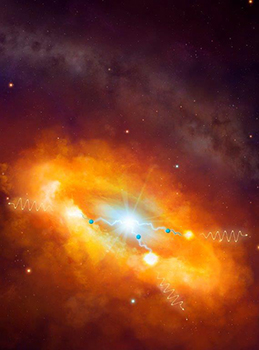Latest News Archive
Please select Category, Year, and then Month to display items
26 November 2020
|
Story Leonie Bolleurs
![]()
Mind Matters is a first for the UFS. It is a mental-health publication for students aimed at highlighting what matters most when it comes to your mind, life, and well-being. Some sections share how individuals in the top echelons of the UFS take care of their minds. Other sections focus on how to support your grey matter (i.e. your brain) and, consequently, improve your general functioning. Some parts discuss matters related to careers, well-being, finance, and self-development. We also provide news and resources that might matter to you.
Whatever your fancy, Mind Matters focuses primarily on why the health of your mind matters. Our minds and brains are the most powerful intelligence or apparatuses on the planet. A power like this needs to be wielded wisely, otherwise we may suffer much from our own neglect of our mental health. It’s not always easy, but it is important!
Mind Matters was possible due to the cumulative contributions, inputs, and work of numerous UFS professionals, especially within
Student Affairs. We are grateful and proud of each person involved. We endeavour to honour these efforts by continually improving and developing Mind Matters. Your feedback and voices are most welcome and will continue to inform what we do next.
Two scientists part of team that discovers the source of the highest energy cosmic rays at the centre of the Milky Way
2016-03-22

Artist's impression of the giant molecular clouds surrounding the Galactic Centre, bombarded by very high energy protons accelerated in the vicinity of the central black hole and subsequently shining in gamma rays.
Artist's impression: © Dr Mark A. Garlick/ H.E.S.S. Collaboration Spotlight photo:
Dr Brian van Soelen and Prof Pieter Meintjes of the UFS Department of Physics.
Photo: Charl Devenish
|
H.E.S.S. (High Energy Stereoscopic System) scientists publically revealed their latest galactic discovery in the international science journal, Nature, on 16 March 2016. These scientists were able to pinpoint the most powerful source of cosmic radiation – which, up to now, remained a mystery.
Part of this team of scientists are Prof Pieter Meintjes and Dr Brian van Soelen, both in the University of the Free State (UFS) Department of Physics. Dr Van Soelen explains that they have discovered a proton PeVatron – a source that can accelerate protons up to energies of ~1 PeV (10^15 eV) – at the centre of the Milky Way. The supermassive black hole called Sagittarius A has been identified as the most plausible source of this unprecedented acceleration of protons.
The protons are accelerated to Very High Energy (VHE) gamma rays. The energy of these protons are 100 times larger than those achieved by the Large Hadron Collider at CERN (the European Organization for Nuclear Research).
According to Dr Van Soelen, the fact that this research has been published in Nature demonstrates the importance and pioneering nature of the research conducted by H.E.S.S. The H.E.S.S. observatory – operational in Namibia – is a collaboration between 42 scientific institutions in 12 countries.
In 2006, H.E.S.S. was awarded the Descartes Prize of the European Commission – the highest recognition for collaborative research – and in 2010 the prestigious Rossi Prize of the American Astronomical Society. The extent of the observatory’s significance places it among the ranks of the Hubble Space Telescope and the telescopes of the European Southern Observatory in Chile.
“The next generation VHE gamma-ray telescope,” Dr Van Soelen says, “will be the Cherenkov Telescope Array (CTA), which is currently in the design and development stage.” Both Dr Van Soelen and Prof Meintjes are part of this project as well.
H.E.S.S. has issued a complete statement about the paper published in Nature.